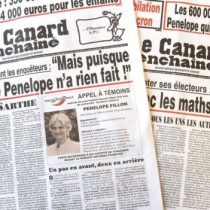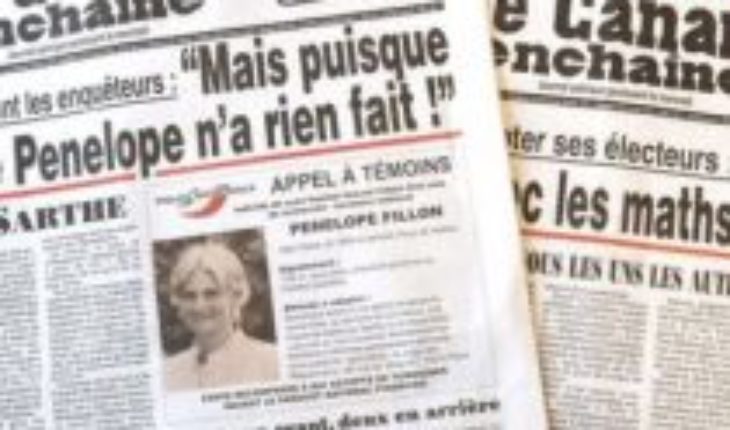
Organizations and professionals around the world agree that press freedom is not at its best. Fake news, economic crisis, manipulation… are the old and new problems that haunt informants, who also suffer an increase in the use of intimidation and violence to silence them.
A pressure that is exacerbated in these times of uncertainty caused by the coronavirus pandemic, as is recorded in the latest report by Reporters Without Borders (RSF) on press freedom, whose international day is celebrated on Sunday.
“We enter a critical decade for journalism, due to the simultaneous crises affecting the future of the press,” warns Christophe Deloire, RSF’s secretary general, for whom coronavirus has become a “multiplier” of media problems that can condition its future.
Achilles heels of press freedom
For RSF, there are five basic aspects that add to the freedom of the press and the future of journalism, and all of them will be aggravated by the pandemic we live in.
On the one hand, the geopolitics, in those countries with dictatorial or authoritarian regimes that seek to restrict this right and impose their worldview.
RSF includes among them China, information hypercontroller; Saudi Arabia or Egypt, with the highest number of journalists in prison; and Russia or India, which regularly censor the internet. But there are many more.
It is a right that is a scarce or non-existent good in other countries at war or with authoritarian systems such as North Korea, Iran, Libya, Syria, Sudan, Turkmenistan, Yemen, Equatorial Guinea, Cuba or Vietnam, to name a few.
In a changing context in which the media tries to adapt to the new needs of society, the lack of adequate regulation in the era of digital and globalized communication has created chaos in the information world. And this is the second of the unresolved problems.
For RSF there is confusion of commercial, editorial and political content, competing with each other.
We’ve all witnessed press conferences where presidents like US President Donald Trump or Brazil’s Jair Bolsonaro discredited the press or simply shut up reporters.
For RSF these situations are generated by the “hostility and even hatred of journalists” of some political leaders, which has continued to be accentuated and which has opened a third front to the free exercise of the profession.
There is also a crisis of confidence on the part of citizens towards the means suspected of spreading unreliable “contaminated news”. And that has caused informants to be attacked during the coverage of protests by nationalist groups, far-right supporters or citizens disgruntled with the system that see the informant as an enemy of their demands.
Economic crisis and journalism, bad travel companions
And it cannot be ignored, as a fifth element that threatens the media, the successive economic crises that are being blinded by the sector, engaged in a digital transformation for years that has left it low, according to RSF.
This causes significant reductions in jobs (in the last decade alone the US press has lost half of its journalists) and weakens companies facing economic hardship in the face of potential pressures from factual powers.
For many, this is a perfect storm that has sunk many media and has been aggravated by the debacle generated by the pandemic.
“The house was already on fire and COVID just pours more gasoline into the fire. This will accelerate the changes that were already taking place and important lessons will have to be drawn,” journalist and professor Jeff Jarvis, one of the global gurus of digital journalism, recently told Efe from his New York home.
The journalist, in the crosshairs of narcos and terrorists
The days when the journalist was a mere spectator and narrator of conflicts and wars, in which he used to be respected by all the opposing sides, the story has almost passed.
Since the advent of globalized terrorism, especially the jihadist almost two decades ago, and more recently the organized crime and drug mafias, informants are perceived as “sequesterable” beings (first to raise money in return) or as threats that must be eliminated so that they do not investigate their activities (in the case of the latter).
This year alone a dozen journalists have died in the world, according to RSF’s count, and another 229 have been imprisoned.
If you look at Mexico, one of the most dangerous countries to practice this profession, since 2000 131 murders of informants have been documented, says the NGO Article 19. Corrupt politicians and organized crime are responsible for shutting down the voices of those who dare to give up their activities.
And threats and kidnappings by paramilitary organizations, drug traffickers and guerrilla groups are on the rise in countries like Colombia or Nicaragua.
The press is, in these places, a target to beat, while it is almost non-existent in others such as Syria, Libya or Afghanistan, where conflicts are fought over which a severe information blackout is heavy.
Covid: another virus threatens freedom in palliative care
With press freedom in many parts of the globe in palliative care, even though we live through the period of history with the greatest number of democracies, COVID-19 has only come to aggravate the state of the battered sick.
It is true that most media outlets have noticed significant increases in the consumption of information by citizens in online newspapers or on open-ended television channels: citizens devour news about the pandemic in full confinement, but the economic pardon has caused such a debacle in advertising revenue that many media outlets already take on losses.
The World Association of Newspapers and News Editors (WAN-IFRA), which represents more than 18,000 publications worldwide, believes that private media, whose incomes have already been reduced by between 70% and 80%, are being particularly punished.
With weakened means and the population confined by the state of emergency, the temptation to try to restrict information traffic through the cuts of rights appears for many governments.
“It is worrying that the COVID-19 pandemic is being used in some countries as a pretext for imposing undue restrictions on press freedom,” said the High Representative of the European Union for Foreign Affairs, Josep Borrell.
Restrictions and censorship that come when the editorials are empty, the confined professionals and the press conferences and interviews are virtual, something unprecedented and that clashes with the journalistic principle of “being” in the place of the facts in order to count them.
Everyone thinks when we get over the pandemic, nothing will be the same. And for press freedom I’m sure the scenario won’t be the same either, but one that strengthens everyone’s right to inform and be informed will have to be recaptured.





